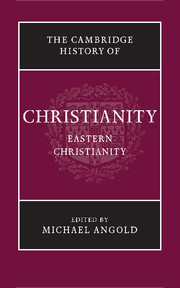22 - Diaspora problems of the Russian emigration
from PART IV - THE MODERN WORLD
Published online by Cambridge University Press: 28 March 2008
Summary
Diaspora
The question of diaspora is proposed for the agenda of the long-delayed ‘great and holy’ council of the Orthodox Church. Indeed, since 1976 it has been given pride of place in that agenda: it is a question that needs to be resolved ‘as quickly as possible’. In the absence of any such resolution there is a wide range of factors, ecclesiological as well as pastoral, which will continue to frustrate the Orthodox at large.
The Old Testament concept of diaspora provides insufficient guidance. It assumes not only a single faith for all concerned – a reasonable assumption for Orthodox Christians of modern times – but also a single sacred centre. Any substitute was necessarily of limited duration, no matter how long it might last: reversion to the primal centre will always be desired, as the yearning for Jerusalem expressed in Psalm 137 emphasises.
Despite its post-Constantinian attractions as a pilgrim destination, Jerusalem was hardly to play so prominent a role in Christian thought. In any case, it was not deemed to be the ‘home’ from which the faithful were dispersed. Other apostolic centres such as Rome, Antioch or Alexandria came to be treated as equally, if otherwise, important. In due course the foundation of Constantinople (330) was to give the eastern capital ever greater prominence. In 381 the second ecumenical council advanced it to second place in order of major Christian sees, and an apostolic pedigree was eventually invented to confirm its role. Its early claim to the title ‘ecumenical’ (470s–480s) suggested claims to widespread, if not universal, status.
- Type
- Chapter
- Information
- The Cambridge History of Christianity , pp. 537 - 557Publisher: Cambridge University PressPrint publication year: 2006
References
- 2
- Cited by

